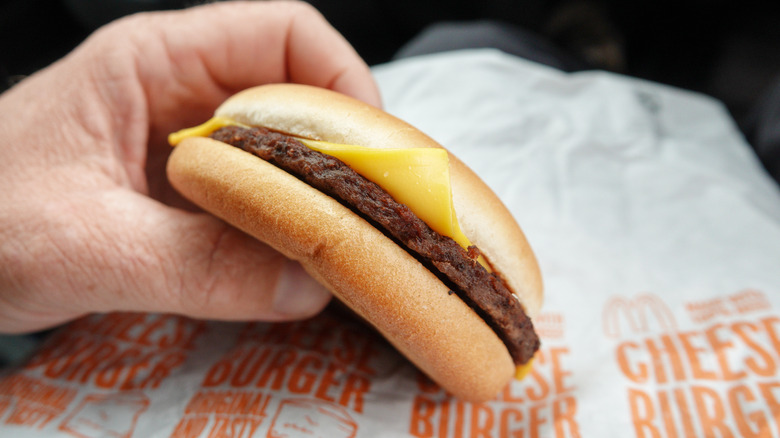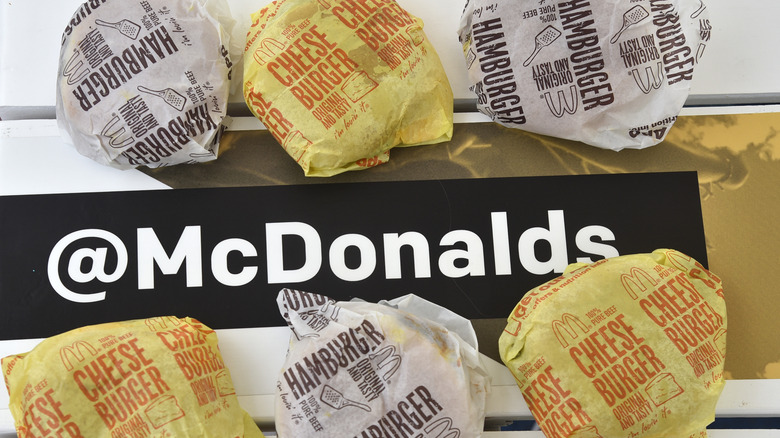Can McDonald's Hamburgers Decompose?
We want you to do a little experiment for us. Go to your nearest McDonald's and buy a burger. Something from the dollar menu will do just fine. Now take the burger home and put it, still wrapped, anywhere in a cool, dark, hard-to-reach place. We suggest behind an old, heavy cabinet, loose floorboard, or maybe toss it in that unused, forgotten sock drawer. Wait two or three years, get the burger from wherever you hid it, and write us the results.
While leaving fast food out in the open may not sound so much like an experiment as it is making a mess, it can demonstrate just exactly what makes up your average fast-food burger. Can a McDonald's burger, in this case, go bad? Can it go stale? If it was made from 100% ground beef as McDonald's so claims instead of endless preservatives, it'd spoil, right? According to one David Whipple, McDonald's burgers seem to resist the usual decay and rot that befalls other natural foods. As Popular Mechanics explains, Whipple has a McDonald's hamburger from over 20 years ago in his home, having purchased the burger in the summer of 1999. Although the onions, ketchup, and pickles all rotted away, the bun and patty seem to have remained in startingly good condition. In fact, the burger itself seems almost edible, if not a little pallid.
Does this imply that McDonald's beef patties aren't real beef, but instead nothing more than beef-flavored fillers, chemicals, and other unnatural garbage?
McDonald's burgers don't decompose under the right conditions
If you're reading this and thinking that the cheeseburger you ate back in June might still be sitting in the pit of your stomach, you needn't worry. While McDonald's food admittedly isn't exactly healthy, all things considered, your stomach isn't home to fossilized McNuggets and Big Macs. According to McDonald's (via Business Insider), the reason its food doesn't break down is thanks to the cooking process.
As the meat patty is prepared on the grill, it loses moisture. More moisture is lost when the burger is left out, as whatever water is left simply evaporates. Without any moisture, that burger doesn't so much spoil as it does dry out. It's like finding mold on the inside of a waterlogged house — the mold feeds and thrives in moist environments. A McDonald's meal can spoil, but it has to be under certain conditions.
According to J. Kenji Lopez-Alt of Serious Eats, larger burgers like Quarter Pounders and Big Macs will mold before they begin to dry out, due to their larger size. If you were to store a Big Mac in a tightly closed Ziplok bag to prevent the lost moisture from escaping, the burger would spoil just as any other piece of meat would.
So long as your burger is in a cool, dry place, you could theoretically have a piece of Mickey D's history you can keep with you forever. Just don't get any funny ideas about eating it.

